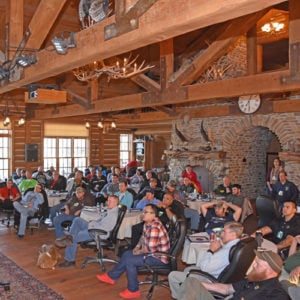Only a veteran knows exactly what returning from active duty means. Even when you’ve been surrounded by your fellow Corpsmen and women, you had your own, unique reactions to the things you’ve seen. Sometimes, these experiences can prove traumatic.
Post-Traumatic Stress (PTSD) is a natural reaction to potentially life-threatening events that are hard to process. Over 7.7 million adults in the United States have been affected by PTSD, with a significant number of them being military service members. It’s not a matter of being mentally weak. In fact, it’s still unknown why some individuals develop this condition and others don’t.
However, PTSD is known to emerge in those who: directly experienced a traumatic event, witnessed the event happening to another, learned that the event has happened to someone they are close to or experienced repeated exposure to details of the event. With veterans, PTSD usually affects those with combat experience, however even family members of wounded warriors have developed symptoms.
PTSD is characterized by a variety of behaviors. The most common are flashbacks to the event and nightmares about it. These memories can become intrusive and affect daily life, or in the case of nightmares, cause those who suffer from them to develop insomnia. Anxiety and depression are also common symptoms of PTSD, which includes both the physical and mental strain of each.
Because of the intense nature of these symptoms, many veterans begin to isolate themselves from others or turn to substance abuse as a means of escape.
At FMF, our goal is to combat this trend. PTSD can be an insidious challenge, seeming to affect an individual for so long that they can barely remember life without it. And sometimes, symptoms return even after disappearing for a while.
Our FOCUS program targets these feeling exactly, giving our participants the tools they need to make changes and improve their day-to-day lives. By learning how to take back control, they can overcome not only their present challenges, but all futures ones as well.
If you are suffering from PTSD, then you’ve already taken the first step to recovery by visiting this website. The next step is taking back your life. And we know how to help with that.




